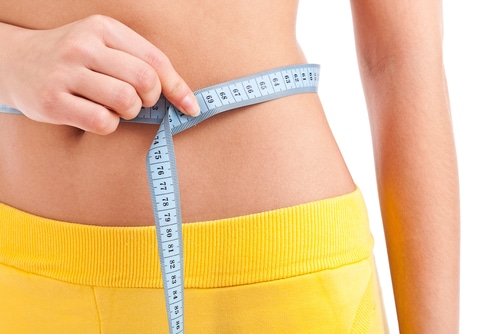
Probiotic Bacteria: An Ally for Body Fat Loss?
Can some bacteria help you lose body fat? That’s what researchers at the University of Manitoba wanted to find out. They asked a group of healthy men and women to eat yogurt that contained two types of probiotic bacteria called L. amylovorus and L. fermentum, for 43 days. Another group ate yogurt without these gut-friendly bacteria. The results? At the end of the 43-day study, the group that ate yogurt with the added gut-friendly bacteria lost 4% of their total fat mass while the group that ate yogurt with no additional lactobacillus lost only 1%.
This isn’t the first time that gut bacteria have been linked with body weight. Other research shows that people who are obese have different bacteria in their gut than people of normal weight, and this may have an impact on a host of factors that affect weight and body composition.
How might bacteria impact body weight? One study in mice showed that mice supplemented with probiotic bacteria metabolized bile acids differently. Bile acids are involved in fat absorption so probiotic bacteria may alter the body’s ability to absorb calories from fat to some degree so more of it passes through the intestinal tract without being absorbed. In essence – free calories. Who doesn’t want that?
Changing gut bacteria seems to also have an impact on appetite and food intake. When bacteria from obese-prone rats were transferred to rats of normal weight, a surprising thing happened. The rats began to eat more food and put on body weight. Simply changing the composition of the bacteria in their intestines altered their feeding habits, leading to weight gain.
Gut Bacteria and Macronutrient Absorption
Dr. Krajmalnik-Brown who has researched the role gut bacteria play in weight control and obesity believes that certain types of intestinal bacteria are able to process normally indigestible carbohydrates that typically pass through the intestines without being absorbed. When these bacteria absorb these “indigestible” carbohydrates, more calories can be extracted from food. It’s possible that obese people have more of these types of bacteria in their intestinal tract.
Change Your Eating Habits, Change Your Bacteria?
The composition of gut bacteria in the intestines can also be altered by diet. Gut bacteria composition varies among people living in different parts of the world based on the type of diet they eat. Research also shows that gut bacteria composition changes within days of changing dietary composition. For example, switching from a meat-based diet to a predominantly vegetarian one or from processed foods to a whole food diet can alter the type of bacteria that hang out in your gut.
The Bottom Line?
Not only do probiotic bacteria in your gut have benefits from an immunological standpoint, but they may also be your ally, or worst enemy when it comes to controlling body fat. Unfortunately, research is still in its infancy and no one knows what the ideal bacterial composition for avoiding weight gain would be.
One thing you can do to “optimize” the bacteria in your gut is to eat yogurt with active cultures and more fermented foods – and avoid taking antibiotics unless they’re absolutely necessary. Antibiotics destroy good bacteria along with the bad ones and upset the “balance of power” in your intestines. Interestingly, antibiotics have also been linked with weight gain, especially when children take them early in life. Chances are you’ll hear more about the role gut bacteria play in obesity in the future.
References:
Nutraingredients.com. “Probiotics May Help Cut Body Fat Levels”
Science Daily. “Probiotics Affect Metabolism, Says New Study”
Nutraingredients.com. “Gut Bacteria Could Hold Key in Obesity Fight”
Scientific American. “Antibiotics Linked to Weight Gain”
Science Daily. “Complex World of Microbes Influence Body Weight”
Related Articles By Cathe:
Probiotics and Prebiotics: What’s the Difference and Why Does It Matter?

